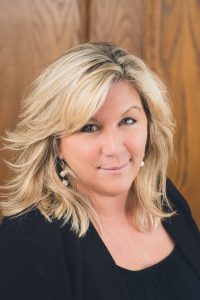Leadership is critical in today’s evolving business environment. Leadership affects the culture, people, and the organization’s overall ability to succeed. But the age-old question remains the same – what makes a good leader? We spoke with Susan Pahl, Founder & CEO Shift Coaching Inc., to get her perspective on leadership and the role coaching plays in leading a successful team.
Occupation: Founder & CEO Shift Coaching Inc.
Susan Pahl is the CEO and Founder of Shift Coaching, a leadership development and corporate coaching company. Shift Coaching develops leaders, teams and organizations to adapt change and grow.
“To me, leadership is not a position, a title or a set of traits. It is the ability to get others to want to work together and even struggle to achieve a shared goal. The ultimate form of leadership is to enable each member of the group to bring their best self and best efforts to bear on the goal at hand,” says Susan.
Analyzing the Trends
Susan engaged in extensive research to understand the new trends in leadership development and get ahead of the curve. She was particularly struck by the data that showed the impact of coaching on productivity, culture and employee engagement in business across a variety of industries.
“According to a study by Bersin & Associates, now a part of Deloitte, leaders that coach are 130% more likely to realize stronger business results. In addition, organizations with a culture of coaching achieve 21% higher business results. These are astounding numbers. When your leaders use coaching as an integral tool of management, the business grows.”
“Research by Zenger Folkman found that “more than 60% of employees who report to managers who are not good coaches are thinking about quitting.” This is based on more than 500,000 360-degree assessments on 50,000 leaders. Coaching is a fundamental tool to not only bring out the best in people, but retain them too.”
Susan also identified what many modern leaders struggle with. She describes how “command and control leaders rely on their own skills and abilities to solve problems and be the experts. This new world requires multiple people and multiple brains to be able to navigate this fast-paced increasingly complex world we live in.” Instead of taking an authoritative approach, Susan suggests that leaders need to know how to create “a collaborative work environment where people can think for themselves, solve problems and be innovative.”
Finding the Niche
The reality today is this: “There is no playbook or training program to address the complexity that people are facing today,” Susan comments. Constant adaptation to change, competition for attracting and retaining top talent as well as employee development are just some of the ongoing tasks that managers need to think about.
“The role of HR is changing. How do we prepare people to work, lead and learn effectively in the complex constantly changing world? To start we need to support HR professionals and career educators to become coaches and equip them with the skills to support others.”
Identifying the gap between employees’ expectations and managers’ ability to meet them, Susan came up with the idea for Shift Coaching. “I wanted to provide a program that covered all the essential elements of coaching in the context of the business environment with practice, reflection and feedback that would fit in with a business person’s busy schedule,” says Susan. She adds that “every leader needs A coach and that every leader needs TO coach.” So really, Susan teaches others to learn by doing. Those who participate in the program not only learn how to coach others, but they also get coached themselves.
Coaching Leaders
So how does The Shift Corporate Coach Program work? It is built for business leaders and it stands apart from other coaching programs because it incorporates the business context, is efficient and is integrated into the leaders’ workday. Unlike other programs that only provide a generic overview of coaching or require a significant time investment, Shift Coaching equips participants with practice, reflection and feedback that fits within a business person’s busy schedule.
Participants learn core coaching concepts through an experiential hands-on process. As a result of completing the program, according to Susan, leaders can:
- Generate improved productivity
- Reduce conflict across the organization
- Increase the response to managing and implementing change
- Use industry-leading leadership tools to grow staff and develop people
- Create a renewed vision and strength in their approach to developing the corporate culture
- Create a greater focus on the art of relationship-building throughout the organization; with direct reports, peers, stakeholders and clients
- Explore the benefits of using coaching conversations in everyday applications as well as in formal protocols
Shift Corporate Coach Program recently opened up for new grads in an effort to shape the leaders of tomorrow early on.
“Becoming a coach early in a new grad’s career will prepare them to have healthy approaches to the people issues and have the ability to coach others, preparing them for positions of leadership. We have heard so many of our [more mature] participants say that they wished they had these skills 20-30 years ago and how their careers may have been very different. So we said: “Why wait?” – let’s bring this to new grads and help them get coaching skills early on.”
Constantly Evolving
It’s evident: the change is here. The massive challenge of adapting and evolving together with the industry is something that every business manager (current or aspiring) needs to embrace.
“Robert Keagan calls it “Constructive Destabilization” in his book “An Everyone Culture”. He says that, if you can perform your role to a high level, you are actually no longer in the right job. As soon as something is working perfectly, it is time to blow it up and move up to the next level. He suggests running into useful trouble and using this trouble to learn and grow. This is the opposite of “business as usual”. Pain + Reflection = Progress.”
Susan comments that HR professionals will only be able to grow by introducing desirable and purposeful challenges in their work lives. Learning and development programs are a safe way of practicing to combat these difficulties.
“Ongoing development must be woven into the daily fabric of working life and people’s limitations will be seen as their growing edge. Organizations need to aggressively seek opportunities for their leaders to practice, experiment and learn in this new changing environment. They also need to change how they evaluate and develop leaders,” says Susan. Her passion for better leaders of tomorrow is evident in everything she does.
If you’re ready for the next step in your leadership development, explore what Shift Coaching has to offer. Do you know a soon to be or a recent grad that might benefit from the Shift Corporate Coach Program™️?
TalentEgg is proud to partner with Shift Coaching to offer young professionals an exceptional leadership development opportunity give-away valued at $5,000! Find out more here!


